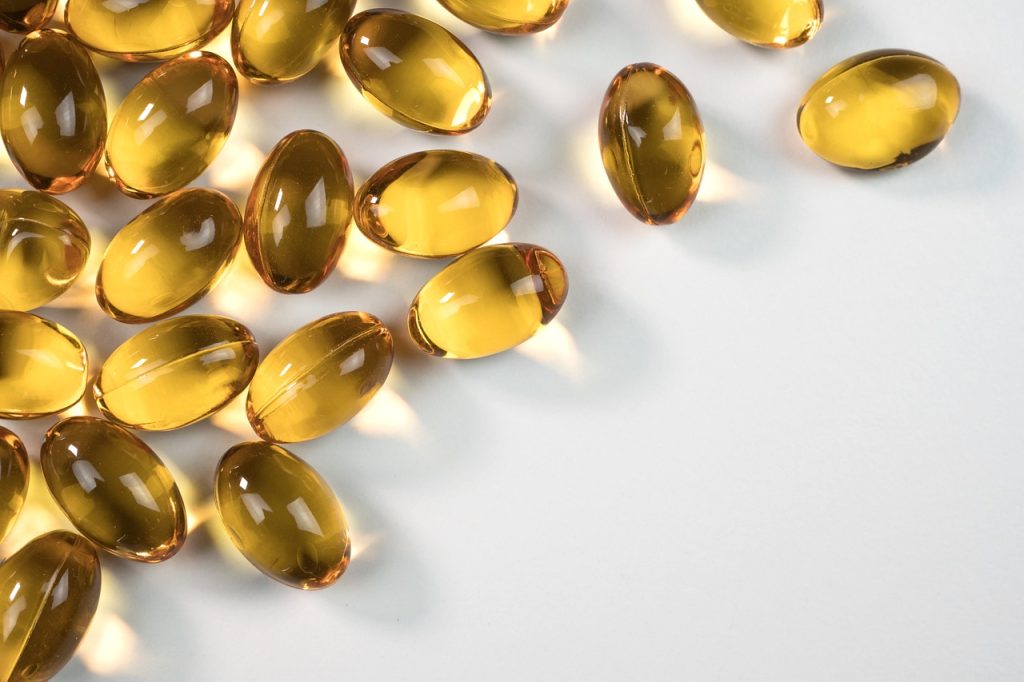So, you’ve just had surgery and you’re eager to get back to your normal routine, including taking care of your hair. However, it’s important to know when it’s safe to start using hair growth products or supplements after the procedure. Your body needs time to heal and introducing new products too soon could interfere with the recovery process. It’s best to consult with your healthcare provider before incorporating any new hair care products into your post-surgery regimen to ensure they won’t impede your healing progress. When Can I Start Using Hair Growth Products Or Supplements After The Surgery?
Hey there! So, you’ve just had surgery and you’re eager to get back to your normal routine, including taking care of your hair. But when is it safe to start using hair growth products or supplements again? Let’s dive into the details and find out when you can start incorporating these products back into your hair care routine.
Understanding the Healing Process
Before we discuss when you can start using hair growth products or supplements, it’s essential to understand the healing process after surgery. Your body needs time to recover and heal from the trauma of the procedure. During this time, it’s crucial to follow your doctor’s post-op instructions to ensure a smooth and successful recovery.
After surgery, your body goes through different phases of healing, including inflammation, tissue repair, and remodeling. It’s essential to give your body the time it needs to heal properly before introducing new products that could potentially interfere with the healing process.
The Role of Hair Growth Products and Supplements
Hair growth products and supplements are designed to promote hair growth, strengthen hair follicles, and improve overall hair health. These products often contain vitamins, minerals, and other nutrients that nourish the scalp and hair follicles, leading to thicker, healthier hair growth.
However, some hair growth products and supplements may contain ingredients that could irritate your scalp or interfere with the healing process after surgery. It’s essential to be cautious when reintroducing these products into your hair care routine to prevent any potential complications.
Consulting with Your Healthcare Provider
The first step before starting any hair growth products or supplements after surgery is to consult with your healthcare provider. Your doctor knows your medical history, the details of your surgery, and can provide personalized guidance on when it’s safe to start using these products again.
When to Schedule a Follow-Up Appointment
If you’re unsure when to start using hair growth products or supplements after surgery, schedule a follow-up appointment with your healthcare provider. During this appointment, you can discuss your concerns, ask any questions you may have, and receive personalized recommendations based on your individual recovery process.
Your doctor may advise you to wait a certain amount of time before incorporating hair growth products or supplements back into your routine, depending on the type of surgery you had and your overall healing progress.

Post-Surgery Recovery Timeline
Every surgical procedure is different, and the post-surgery recovery timeline varies depending on the type of surgery you had, your overall health, and how well you follow your doctor’s post-op instructions. It’s essential to be patient and allow your body the time it needs to heal properly before introducing new products into your hair care routine.
Common Post-Surgery Recovery Phases
-
Immediate Recovery (Days 1-7): During the immediate recovery phase, your body focuses on healing the surgical incisions and reducing inflammation. This phase is crucial for the initial healing process and laying the foundation for the rest of your recovery journey.
-
Early Recovery (Weeks 1-4): In the early recovery phase, your body continues to heal, and you may start to experience a decrease in swelling and discomfort. This phase is crucial for allowing your body to repair tissue damage and begin the process of rebuilding strength.
-
Intermediate Recovery (Weeks 4-8): The intermediate recovery phase is when your body transitions from healing to rebuilding. During this phase, your body focuses on strengthening the repaired tissues and regaining function and mobility.
-
Late Recovery (Months 2-6): The late recovery phase is when you start to see significant improvements in your overall health and well-being. Your body continues to heal and rebuild, and you may start to feel more like yourself again.
Factors That Influence Recovery Time
Several factors can influence how quickly you recover after surgery, including your age, overall health, the type of surgery you had, and how well you follow your doctor’s post-op instructions. It’s essential to listen to your body, take it easy, and give yourself the time you need to heal properly.
How Hair Growth Products and Supplements Can Affect Healing
Hair growth products and supplements contain active ingredients that can stimulate hair follicles, promote circulation, and nourish the scalp. While these products are generally safe for most people, they may contain ingredients that could potentially interfere with the healing process after surgery.
Ingredients to be Cautious About
-
Alcohol: Some hair growth products contain alcohol, which can be drying and irritating to the skin. After surgery, your skin may be more sensitive, making alcohol-based products potentially harmful.
-
Sulfates: Sulfates are common in shampoos and can be drying to the scalp. After surgery, it’s essential to use gentle, sulfate-free products to prevent any irritation or discomfort.
-
Fragrances: Fragrances can be allergenic and irritating to the skin. It’s best to avoid hair growth products with added fragrances to reduce the risk of adverse reactions after surgery.
Potential Risks of Using Hair Growth Products Too Soon
If you start using hair growth products or supplements too soon after surgery, you may be at risk of:
-
Skin Irritation: Active ingredients in hair growth products may cause irritation to your healing skin, leading to redness, itching, or discomfort.
-
Infection: Open wounds or incisions are susceptible to infection. Using hair growth products too soon may introduce bacteria or other irritants to the healing area, increasing the risk of infection.
-
Delayed Healing: Hair growth products that contain harsh ingredients may delay the healing process, preventing your skin from properly repairing and regenerating.

Recommended Timeline for Introducing Hair Growth Products
Once you’ve consulted with your healthcare provider and received the green light to start using hair growth products or supplements after surgery, it’s essential to follow a gradual approach to prevent any potential complications.
Week 1-2: Focus on Gentle Cleansing and Hydration
During the first week or two after you’ve been cleared to use hair growth products, focus on gentle cleansing and hydration for your scalp and hair. Use a mild, sulfate-free shampoo and conditioner to cleanse and nourish your hair without stripping away essential oils.
Week 3-4: Introduce Lightweight Hair Growth Products
After the initial two weeks of focusing on gentle cleansing and hydration, you can start incorporating lightweight hair growth products into your routine. Look for products that contain essential vitamins and minerals to nourish your hair follicles and promote healthy hair growth.
Week 4-6: Begin Using Hair Growth Supplements
Around weeks 4-6 post-surgery, you can start introducing hair growth supplements into your routine. Look for supplements that contain essential nutrients like biotin, vitamin E, and iron to support healthy hair growth from within.
Monitoring Your Progress
As you start using hair growth products or supplements after surgery, it’s essential to monitor your progress and track any changes in your hair health. Keep an eye on how your hair feels, looks, and behaves to determine if the products you’re using are benefiting your hair or causing any adverse reactions.
Signs of Progress
-
Increased Hair Thickness: You may notice an increase in hair thickness and fullness with consistent use of hair growth products and supplements.
-
Reduced Hair Shedding: Hair growth products can help reduce hair shedding and promote stronger, healthier hair growth over time.
-
Improved Scalp Health: A healthy scalp is essential for optimal hair growth. Look for improvements in your scalp health, including reduced dryness, flakiness, or irritation.
Signs to Watch Out For
-
Scalp Irritation: If you experience redness, itching, or discomfort on your scalp, it may be a sign that the hair growth products or supplements you’re using are too harsh for your skin.
-
Increased Hair Loss: While some hair shedding is normal, an increase in hair loss may indicate that the products you’re using are not suitable for your hair type or scalp.

Final Thoughts
When it comes to using hair growth products or supplements after surgery, it’s essential to prioritize your healing process and consult with your healthcare provider before making any changes to your hair care routine. By following a gradual approach and monitoring your progress, you can safely reintroduce these products into your routine and support healthy hair growth post-surgery.
Remember to be patient with your hair growth journey and give your body the time it needs to heal properly before expecting significant results from hair growth products or supplements. Your hair health is an essential part of your overall well-being, so take the time to care for your hair and scalp with gentle, nourishing products that support your recovery and promote healthy hair growth.

